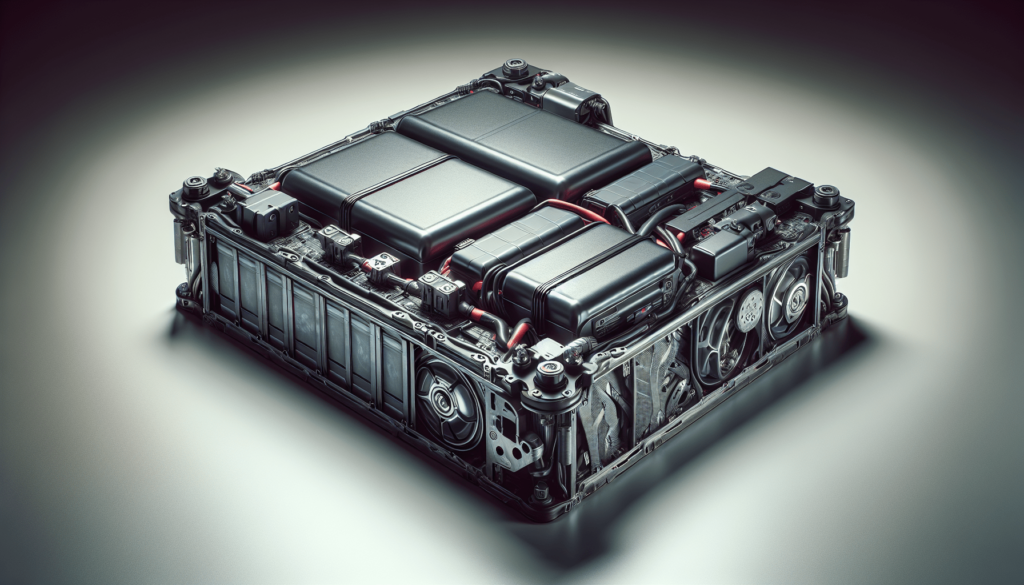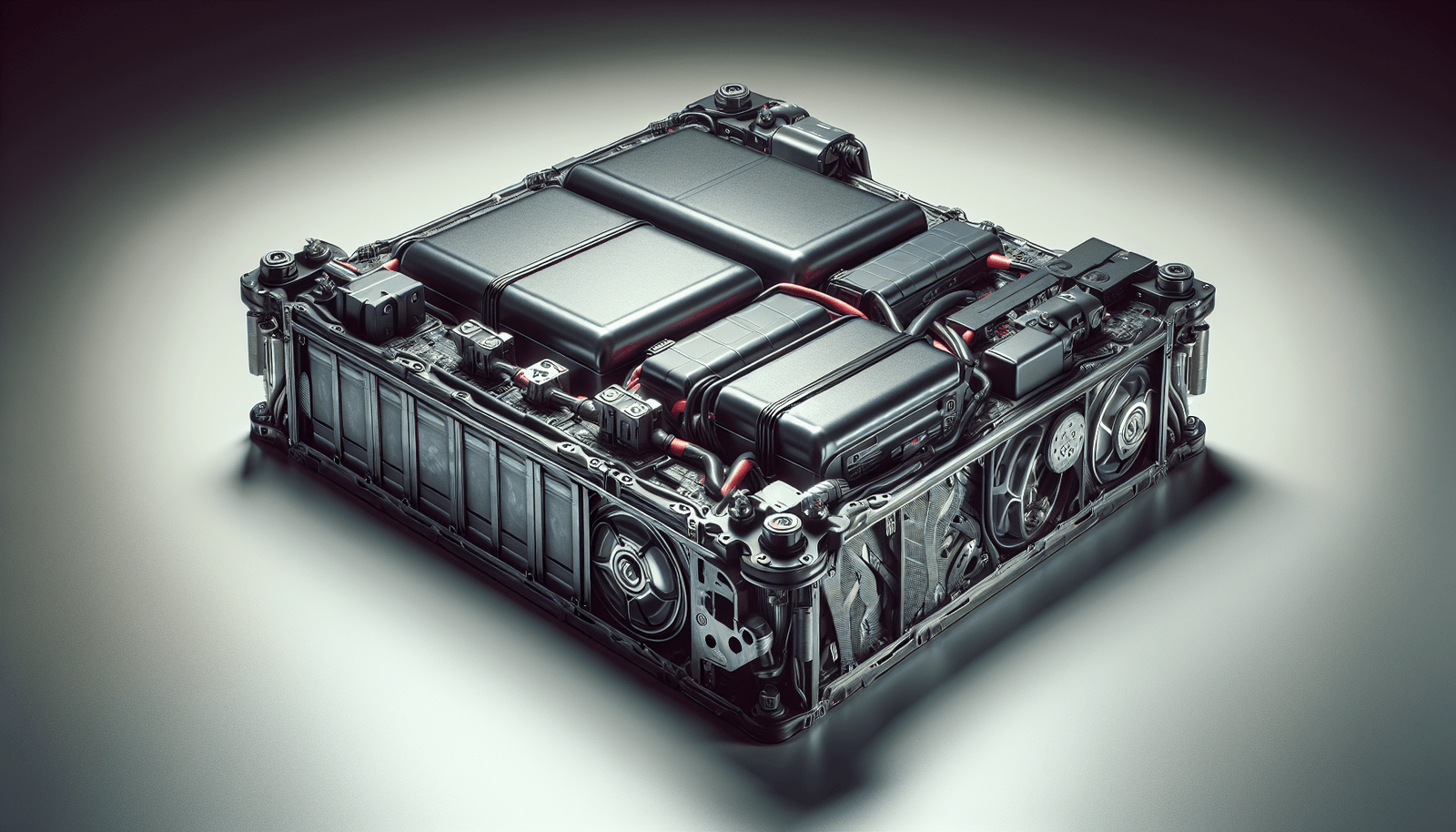Are you considering purchasing the Audi e-tron GT electric sports car, but concerned about potential battery degradation issues? Well, worry no more! This article examines whether there are any known issues with battery degradation in the Audi e-tron GT, providing you with valuable insights to make an informed decision. Whether you’re a performance enthusiast or an eco-conscious individual, read on to discover the truth about battery degradation in this cutting-edge electric sports car.

Introduction
Overview of the Audi e-tron GT
The Audi e-tron GT is a fully electric sports car that offers a combination of thrilling performance and zero-emissions driving. With its sleek design, cutting-edge technology, and impressive range, the e-tron GT has quickly become a popular choice among electric vehicle enthusiasts. However, like any electric car, the e-tron GT’s battery is subject to degradation over time. In this article, we will explore the concept of battery degradation, the factors that can affect it, and how it pertains to the Audi e-tron GT. We will also discuss Audi’s approach to battery management, real-world performance, ongoing studies, potential issues, and tips for maximizing battery life.
Battery Degradation in Electric Cars
Understanding battery degradation
Battery degradation refers to the gradual loss of a battery’s capacity to store and deliver energy over time. In the case of electric vehicles like the Audi e-tron GT, the lithium-ion battery pack is the heart of the vehicle’s powertrain. While lithium-ion batteries are highly efficient and reliable, they are not immune to degradation.
The process of degradation occurs due to a combination of chemical reactions and physical changes within the battery cells. Over time, these factors lead to a decrease in the battery’s overall capacity, resulting in reduced range and performance. However, it is essential to note that battery degradation is a natural phenomenon, and manufacturers take various measures to mitigate its impact.
Factors affecting battery degradation
Several factors can influence the rate of battery degradation in electric cars. One of the primary factors is the charging and discharging cycles the battery undergoes. Frequent fast charging or deep discharging can accelerate degradation compared to more gentle charging practices. Additionally, extreme temperature conditions, both high and low, can impact battery health.
Another crucial factor is the design and quality of the battery pack itself. Different manufacturers use various technologies, cell chemistry, and cooling systems, which can significantly influence the battery’s longevity.
Importance of battery health in electric cars
Maintaining battery health is critical for electric vehicle owners as it directly affects the car’s range and performance. A healthy battery not only provides optimal driving range but also ensures consistent power delivery. Moreover, a well-maintained battery retains its resale value, as potential buyers look for vehicles with batteries that are in good condition.
Audi e-tron GT Battery
Battery specifications and technology
The Audi e-tron GT is equipped with a sophisticated battery pack that delivers a balance of performance and range. The specific battery specifications may vary depending on the trim level and optional features chosen. However, the e-tron GT generally utilizes a high-density lithium-ion battery with a capacity in the range of 85 to 95 kWh.
Audi has employed advanced battery technology to maximize the efficiency and longevity of the e-tron GT’s battery. This includes utilizing prismatic or pouch-type battery cells, which have a higher energy density compared to cylindrical cells commonly used in other electric vehicles. The e-tron GT also incorporates a sophisticated cooling system to maintain optimal operating temperatures and prolong battery life.
Expected battery lifespan
The expected lifespan of the Audi e-tron GT’s battery can vary depending on several factors. On average, lithium-ion batteries are designed to last around 8 to 15 years before reaching 70 to 80% of their original capacity. It is crucial to note that this is an estimate, and individual battery life may vary based on usage patterns, environmental conditions, and overall battery management.
Battery warranty and maintenance
Audi provides warranty coverage for the battery in the e-tron GT to ensure customer satisfaction. The exact terms and conditions of the battery warranty may vary depending on the region and local regulations. Typically, the battery is covered under warranty for a specific number of years or a certain mileage threshold.
To help maintain the longevity of the e-tron GT’s battery, Audi recommends following specific maintenance guidelines. This includes adhering to regular service intervals, which can include battery inspections and software updates to optimize performance. Audi also emphasizes the importance of utilizing recommended charging practices and avoiding extreme discharge and temperature conditions.
Battery Management System
The role of a battery management system
A crucial component of any electric vehicle’s battery system is the Battery Management System (BMS). The BMS is responsible for monitoring and controlling the battery’s performance, ensuring efficient and safe operation. It collects data on battery condition, temperature, voltage, and current, and uses this information to optimize charging and discharging processes.
The BMS also plays a vital role in mitigating battery degradation. It employs sophisticated algorithms and strategies to balance cell usage, prevent overcharging or deep discharging, and adjust the charging rate based on the battery’s state of health. Additionally, the BMS contributes to the safety of the vehicle by providing various protections against thermal runaway, overvoltage, and other potential hazards.
Features and capabilities of the Audi e-tron GT’s battery management system
The Audi e-tron GT is equipped with an advanced battery management system that ensures optimal battery performance and longevity. The BMS collects real-time data from the battery pack’s cells, allowing it to accurately determine the state of charge and health of the battery.
One notable feature of the e-tron GT’s BMS is its ability to control energy recuperation during deceleration and braking. This regenerative braking system helps reduce wear on the brake pads and maximizes energy efficiency by converting kinetic energy into electrical energy, which is then stored in the battery.
Moreover, the BMS in the e-tron GT integrates with the vehicle’s infotainment system, providing the driver with detailed information about the battery’s state and charging status. This allows users to monitor their battery’s health and make informed decisions regarding charging and driving habits.

Real-World Battery Performance
Range and charging capabilities
The range and charging capabilities of the Audi e-tron GT play a crucial role in determining its real-world battery performance. The range, or the distance the vehicle can travel on a single charge, varies depending on factors such as driving conditions, speed, weather, and payload.
The e-tron GT offers an impressive range that allows for long-distance journeys. Depending on the battery capacity and driving conditions, the e-tron GT can achieve ranges of over 200 miles (320 kilometers) on a single charge, making it suitable for both daily commuting and extended trips.
In terms of charging capabilities, the e-tron GT provides support for both AC and DC fast charging. Using a high-power DC fast charger, it is possible to replenish the battery to approximately 80% capacity within 30 minutes. This fast charging capability ensures convenience and flexibility for users during long trips or when charging infrastructure is limited.
Efficiency and energy consumption
The efficiency and energy consumption of the Audi e-tron GT are crucial factors in maximizing battery life and overall driving range. The e-tron GT boasts impressive energy efficiency, thanks to its aerodynamic design, lightweight construction, and advanced drivetrain technology.
The vehicle’s energy consumption can vary based on driving conditions and usage patterns. In general, the e-tron GT achieves an energy consumption rate of around 19-23 kWh per 100 kilometers, depending on factors such as driving style and external conditions. This efficiency rating underscores the e-tron GT’s ability to deliver a thrilling driving experience while minimizing energy consumption.
User experiences and feedback
User experiences and feedback play a vital role in understanding real-world battery performance. Owners of the Audi e-tron GT have generally been satisfied with the vehicle’s battery capabilities. They have appreciated the impressive range, fast charging options, and the convenience of regenerative braking.
Users have reported that the e-tron GT’s real-world range closely aligns with the manufacturer’s stated figures, giving them confidence in the vehicle’s ability to meet their daily driving needs. Additionally, the e-tron GT’s fast charging capability has been widely praised, allowing for quick top-ups during longer trips.
Overall, user experiences and feedback indicate that the Audi e-tron GT delivers a reliable and efficient electric driving experience.
Long-Term Battery Degradation Studies
Ongoing studies and research on the Audi e-tron GT’s battery degradation
To assess the long-term battery degradation of the Audi e-tron GT and gather valuable data, several independent studies and research initiatives are ongoing. These studies involve monitoring the performance and health of the e-tron GT’s battery over extended periods of real-world use.
These long-term studies involve analyzing factors such as charging patterns, temperature exposure, driving conditions, and battery chemistry. By collecting and analyzing this data, researchers can assess and quantify the rate of battery degradation in the e-tron GT, providing valuable insights for future improvements and understanding customer needs.
Findings and conclusions from independent tests
While independent long-term battery degradation studies specific to the Audi e-tron GT are still ongoing, similar studies conducted on other electric vehicles provide valuable insights into the expected performance of the e-tron GT’s battery.
In general, these studies indicate that contemporary lithium-ion batteries, including those found in electric vehicles, exhibit gradual and consistent degradation over time. However, the rate of degradation varies depending on factors such as battery chemistry, temperature management, and charging practices.
It is essential to note that battery degradation rates are generally within expected norms, and the e-tron GT’s battery is designed with longevity and robustness in mind. Moreover, manufacturers like Audi continually improve their battery designs and technologies to minimize degradation and enhance overall battery performance.
Potential Issues and Concerns
High-speed charging and its impact on battery health
One potential concern related to battery degradation in the Audi e-tron GT is the impact of high-speed charging. Fast charging, while convenient, can lead to increased stress on the battery cells, potentially accelerating degradation. However, it is essential to note that modern electric vehicles, including the e-tron GT, are designed to handle fast charging safely and efficiently.
Manufacturers implement various measures to safeguard battery health during fast charging. These measures include advanced battery cooling systems, sophisticated charging algorithms, and comprehensive thermal management. By carefully managing the charging process, these safeguards help minimize any adverse effects on the battery’s long-term performance.
Extreme weather conditions and battery performance
Extreme weather conditions, both high and low, can impact battery performance and potentially contribute to faster degradation. Extremely hot temperatures can increase the risk of battery aging and capacity loss, while extremely cold temperatures can reduce the battery’s ability to deliver energy efficiently.
To mitigate the impact of extreme weather conditions, the Audi e-tron GT incorporates an advanced thermal management system. This system ensures optimal battery temperature regulation, allowing the vehicle to perform reliably in a variety of climates. Additionally, pre-conditioning features allow users to heat or cool the cabin and battery before driving, optimizing the battery’s performance and range.
User-reported issues or complaints
While the overall feedback for the Audi e-tron GT has been positive, some users have reported minor issues or complaints related to battery performance. These reports are typically isolated incidents and do not represent a widespread problem with battery degradation.
For instance, some users have mentioned a slight decrease in range over time. It is important to note that this decrease in range can be influenced by several factors, including driving conditions, individual driving habits, and external temperature.
In response to user-reported issues or complaints, Audi takes these instances seriously and investigates them thoroughly. The company utilizes feedback from customers to continually improve their vehicles’ battery systems and address any potential concerns promptly.
Audi’s Response and Solutions
Audi’s approach to battery degradation
As a leading manufacturer of electric vehicles, Audi is committed to ensuring the long-term performance and reliability of its batteries. The company recognizes the importance of battery health and continuously develops strategies and technologies to mitigate battery degradation.
Audi incorporates advanced battery management systems, intelligent thermal management, and extensive testing protocols into its vehicles to maintain optimal battery performance and longevity. Additionally, the company actively monitors customer feedback and engages in ongoing research to further enhance its battery technology and address any potential concerns proactively.
Warranty coverage for battery-related concerns
Audi provides warranty coverage for the e-tron GT’s battery to offer peace of mind to customers regarding battery-related concerns. The exact terms and conditions of the warranty may vary depending on the region and applicable regulations. Typically, the battery is covered for a specific number of years or a certain mileage threshold, ensuring that customers have support in case of any battery-related issues.
Customers are encouraged to familiarize themselves with the warranty terms and conditions specific to their region and communicate with their Audi dealerships regarding any battery-related concerns they may have during the warranty period.
Customer support and services
Audi offers comprehensive customer support and services to address any inquiries or issues related to battery performance or degradation. Customers can reach out to their local Audi dealerships or customer service representatives for assistance with battery-related concerns.
Audi’s customer support team is well-equipped to provide guidance on optimal charging practices, maintenance recommendations, and software updates that may improve battery performance. Furthermore, Audi dealerships can assist with any necessary inspections, diagnostics, or repairs for the e-tron GT’s battery system.
Tips for Maximizing Battery Life
Best practices for charging and discharging
To maximize the life of the Audi e-tron GT’s battery, following best practices for charging and discharging is recommended. It is advisable to avoid deep discharge cycles whenever possible. Instead, aim to keep the battery’s state of charge within the range recommended by Audi. Regular, moderate charging sessions help maintain optimal battery health and prevent unnecessary wear.
Utilizing the available regenerative braking feature effectively can also contribute to battery longevity. By leveraging regenerative braking, the e-tron GT can harness energy that would otherwise be wasted during deceleration, helping preserve the battery’s capacity.
Maintaining optimal temperature range
Maintaining the e-tron GT’s battery within its optimal temperature range is crucial for both performance and longevity. Avoiding exposure to extreme heat or cold temperatures can help mitigate battery degradation. Whenever possible, park the vehicle in shaded areas during hot weather and utilize pre-conditioning features to warm or cool the battery before driving in extreme weather conditions.
Regular software updates and recalibration
Audi periodically releases software updates for the e-tron GT to optimize battery performance, address any potential software-related issues, and recalibrate the battery management system. It is advisable to keep the vehicle’s software up to date by following Audi’s recommended update procedures. This ensures that the battery system functions optimally and takes advantage of any improvements or enhancements.
Regular software updates can also offer drivers access to new features and functionalities that further enhance the driving experience and prolong battery life.
Conclusion
Summary of battery degradation in the Audi e-tron GT
In conclusion, battery degradation is an inevitable process that impacts the performance and range of electric vehicles, including the Audi e-tron GT. Understanding the factors that contribute to battery degradation, such as charging practices, temperature, and usage patterns, can help adopt strategies to maximize battery life.
The Audi e-tron GT is equipped with advanced battery technology, a sophisticated battery management system, and comprehensive thermal management to optimize battery performance and minimize degradation. Ongoing studies and research on battery degradation provide valuable insights to improve future battery designs and address customer concerns.
Audi prioritizes customer satisfaction and offers warranty coverage, customer support, and regular software updates to maintain optimal battery health and address any potential issues. By following best practices for charging and discharging, maintaining optimal temperature range, and staying informed about software updates, e-tron GT owners can ensure a positive ownership experience and prolonged battery life.
Overall, the Audi e-tron GT exemplifies Audi’s commitment to delivering a high-performance electric vehicle while ensuring the longevity and reliability of its battery.

